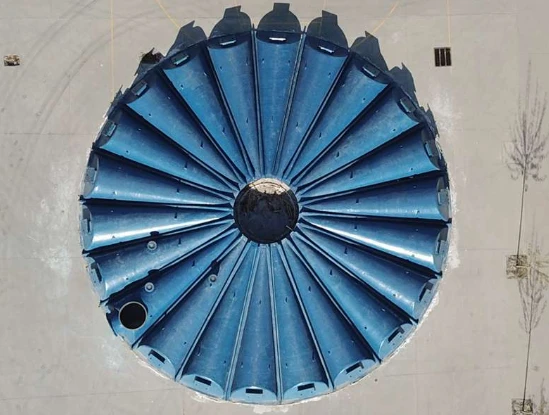
-
 Afrikaans
Afrikaans -
 Albanian
Albanian -
 Amharic
Amharic -
 Arabic
Arabic -
 Armenian
Armenian -
 Azerbaijani
Azerbaijani -
 Basque
Basque -
 Belarusian
Belarusian -
 Bengali
Bengali -
 Bosnian
Bosnian -
 Bulgarian
Bulgarian -
 Catalan
Catalan -
 Cebuano
Cebuano -
 China
China -
 China (Taiwan)
China (Taiwan) -
 Corsican
Corsican -
 Croatian
Croatian -
 Czech
Czech -
 Danish
Danish -
 Dutch
Dutch -
 English
English -
 Esperanto
Esperanto -
 Estonian
Estonian -
 Finnish
Finnish -
 French
French -
 Frisian
Frisian -
 Galician
Galician -
 Georgian
Georgian -
 German
German -
 Greek
Greek -
 Gujarati
Gujarati -
 Haitian Creole
Haitian Creole -
 hausa
hausa -
 hawaiian
hawaiian -
 Hebrew
Hebrew -
 Hindi
Hindi -
 Miao
Miao -
 Hungarian
Hungarian -
 Icelandic
Icelandic -
 igbo
igbo -
 Indonesian
Indonesian -
 irish
irish -
 Italian
Italian -
 Japanese
Japanese -
 Javanese
Javanese -
 Kannada
Kannada -
 kazakh
kazakh -
 Khmer
Khmer -
 Rwandese
Rwandese -
 Korean
Korean -
 Kurdish
Kurdish -
 Kyrgyz
Kyrgyz -
 Lao
Lao -
 Latin
Latin -
 Latvian
Latvian -
 Lithuanian
Lithuanian -
 Luxembourgish
Luxembourgish -
 Macedonian
Macedonian -
 Malgashi
Malgashi -
 Malay
Malay -
 Malayalam
Malayalam -
 Maltese
Maltese -
 Maori
Maori -
 Marathi
Marathi -
 Mongolian
Mongolian -
 Myanmar
Myanmar -
 Nepali
Nepali -
 Norwegian
Norwegian -
 Norwegian
Norwegian -
 Occitan
Occitan -
 Pashto
Pashto -
 Persian
Persian -
 Polish
Polish -
 Portuguese
Portuguese -
 Punjabi
Punjabi -
 Romanian
Romanian -
 Russian
Russian -
 Samoan
Samoan -
 Scottish Gaelic
Scottish Gaelic -
 Serbian
Serbian -
 Sesotho
Sesotho -
 Shona
Shona -
 Sindhi
Sindhi -
 Sinhala
Sinhala -
 Slovak
Slovak -
 Slovenian
Slovenian -
 Somali
Somali -
 Spanish
Spanish -
 Sundanese
Sundanese -
 Swahili
Swahili -
 Swedish
Swedish -
 Tagalog
Tagalog -
 Tajik
Tajik -
 Tamil
Tamil -
 Tatar
Tatar -
 Telugu
Telugu -
 Thai
Thai -
 Turkish
Turkish -
 Turkmen
Turkmen -
 Ukrainian
Ukrainian -
 Urdu
Urdu -
 Uighur
Uighur -
 Uzbek
Uzbek -
 Vietnamese
Vietnamese -
 Welsh
Welsh -
 Bantu
Bantu -
 Yiddish
Yiddish -
 Yoruba
Yoruba -
 Zulu
Zulu
Durable Corrosion-Resistant Fiberglass for Long-Lasting Performance and Reliability
The Advantages of Corrosion-Resistant Fiberglass for Enduring Durability
In an era where material science continuously evolves to meet the demanding challenges of various industries, corrosion-resistant fiberglass stands out as a superior choice for applications requiring long-lasting durability. This innovative material combines strength, lightweight properties, and unmatched resistance to corrosion, making it a vital asset in sectors such as construction, marine, chemical processing, and even aerospace.
Understanding Corrosion-Resistant Fiberglass
Corrosion is a natural process that deteriorates materials over time, especially metals, through chemical reactions with environmental factors. Industries that rely on metal components often grapple with this persistent issue, incurring significant costs for maintenance and replacement. Corrosion-resistant fiberglass, however, provides a solution. This composite material is typically made from glass fibers embedded in a resin matrix, which not only provides structural integrity but also enhances resistance to corrosive agents.
The two primary types of resin used in the production of fiberglass are polyester and epoxy. Polyester resin offers a cost-effective solution, ideal for applications where chemical exposure is limited. On the other hand, epoxy resin offers superior protection against a wider range of chemicals and is resistant to high temperatures, making it suitable for more demanding environments.
Advantages of Corrosion-Resistant Fiberglass
1. Exceptional Durability
One of the most significant benefits of corrosion-resistant fiberglass is its remarkable durability. Unlike traditional materials like steel or aluminum, fiberglass does not rust or corrode when exposed to moisture or aggressive chemicals. This durability translates into a longer lifespan for components, reducing the need for frequent replacements and repairs—an attractive proposition for businesses looking to minimize downtime and costs.
2. Lightweight and Strong
Corrosion-resistant fiberglass is notably lighter than many metals, providing a major advantage in applications where weight is a critical factor. For instance, in the aerospace industry, reducing weight contributes to improved fuel efficiency and performance. In construction and shipbuilding, lighter materials ease handling and reduce overall structural load, allowing for versatile design solutions.
'corrosion-resistant fiberglass for enduring durability.'

3. Cost-Effectiveness
Although the initial investment in corrosion-resistant fiberglass may be higher than conventional materials, the long-term cost savings are significant. Reduced maintenance, increased replacement cycles, and minimal downtime directly translate into lower operating costs. Moreover, the longevity of fiberglass components can significantly outweigh the initial expenditure, making it a smart financial choice.
4. Versatile Applications
Corrosion-resistant fiberglass is incredibly versatile, making it suitable for various sectors. In the chemical industry, it is used for storage tanks, piping, and containment vessels due to its ability to resist aggressive chemicals. In the construction sector, it serves as an excellent material for building facades, bridge components, and structural reinforcements. In marine applications, fiberglass hulls are preferred for boats since they can withstand harsh saltwater conditions without degrading.
5. Environmental Benefits
In today’s environmentally conscious world, the use of corrosion-resistant fiberglass can also be seen as a sustainable option. Its durability means that fewer materials need to be produced and disposed of, resulting in less waste and resource consumption over time. Additionally, many fiberglass formulations are designed to be recyclable, contributing to a circular economy.
6. Aesthetic Flexibility
Fiberglass can be molded into a wide variety of shapes and sizes, allowing for creative and aesthetically pleasing designs. It can also be finished in virtually any color, providing design flexibility that is often not achievable with metals. This makes it a popular choice for industries that value both functionality and aesthetics, such as architecture and product design.
Conclusion
Corrosion-resistant fiberglass is paving the way for advancements in material technology by providing solutions that address the challenges of corrosion and degradation. With its exceptional durability, lightweight properties, cost-effectiveness, and versatility, it has become an essential material across multiple industries. As innovation continues to evolve, the applications for this remarkable material are likely to expand even further, solidifying its importance in the modern world. Embracing corrosion-resistant fiberglass means investing in a durable future, where longevity and performance go hand in hand.









